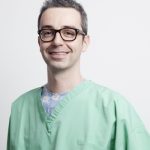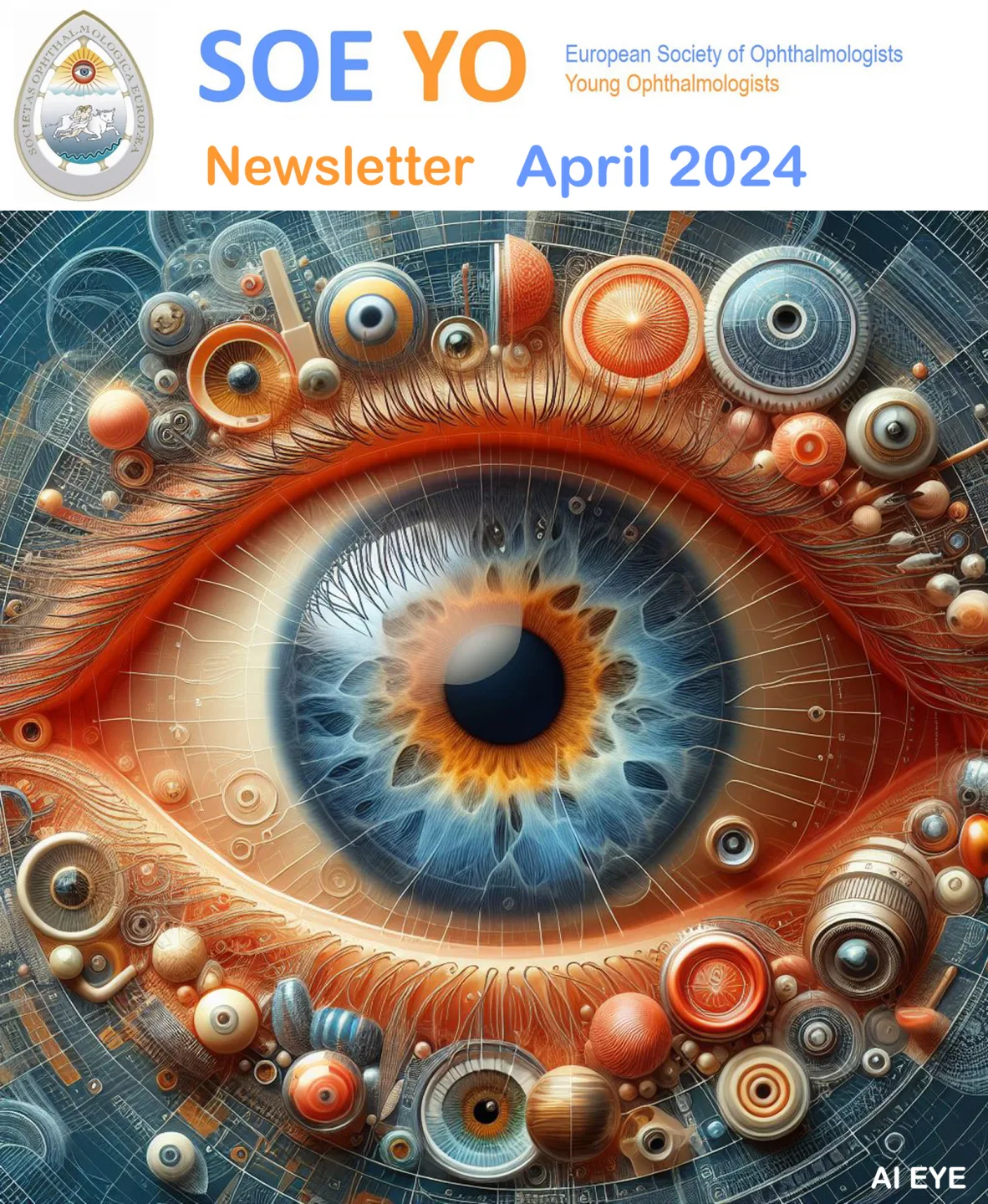EBO & ICO Examination
Report from Kristof Van Schelvergem, MD, FEBO on EBO Exam
 Dear colleagues, It has been more than two years now since I took the European Board Examination in Ophthalmology (EBO) and when looking back at it, I never regretted it for a single second.
Dear colleagues, It has been more than two years now since I took the European Board Examination in Ophthalmology (EBO) and when looking back at it, I never regretted it for a single second.
The exam, as I remember it, consists of two parts: a written multiple choice format, which is pretty straightforward and easily manageable if adequately prepared, and an oral part. I remember the oral part as the more strenuous one. The format of the latter is case based and requires examinees to rotate along different examiners from different subspecialties. Questions are open-ended, start off easy and gradually progress to a higher level of difficulty. Usually they will provide you with a photo-documented case and ask your opinion about the differential diagnosis. The more you know, the more questions you get.
Also if you don’t know the answer, don’t panic! It’s very normal not to know everything! Examiners are in general very friendly and will try to help you out where they can. The official language of the exam is English although it’s possible, at least for the oral exam, to opt for examiners in your own language.
Preparation for this exam takes some time and i would say that an average student probably will need about a full year of almost daily study (2/3 hrs) in order to be succesfull. In Belgium Kanski’s Clinical Ophthalmology is recommended as minimum study material and often suffices to pass the exam. I, personally, preferred and studied the Basic and Clinical Science Course (BCSC, American Academy of Ophthalmology) and found this to be very helpful as it provides more insight and details which may come handy in the oral part. Also some European residency programs require studying the BCSC as part of their residency education program to meet national requirements for Board certification. If so i believe it’s a little effort to sit for the EBO as well.
I would certainly recommend the EBO not only because of it’s long and prestigious tradition but also because it gives the succesfull candidate an extra qualification that is recognised all over Europe. We, Europeans, all graduate from very different national residency programs and the EBO provides a way to measure our theoretical knowledge of basic ophthalmology regardless of our previous pathway.
Those who have acuired the EBO Diploma are allowed to add the title FEBO (Fellow of the European Board of Ophthalmology) after their name.
The exam day is, as tradition wants it, concluded by an informal dinner in Paris which allows for some well earned relaxation after a stressful period.
Good luck to you all!
Kristof Van Schelvergem, MD, FEBO
Report from Ricardo Bastos Amorim, MD, FEBO & FICO
ICO Exams
 The ICO Exams started in 1994 and last year were performed about 5000 examinations in 130 test centers worldwide (80 countries).
The ICO Exams started in 1994 and last year were performed about 5000 examinations in 130 test centers worldwide (80 countries).
You have the Standard Exams (every April):
- Basic Sciences – 80 MCQ (Multiple Choice Questions), 2 hours duration
- Optics & Refraction – 40 MCQ, 1 hour duration
- Clinical Sciences – 200 MCQ (4 hours)
In each MCQ, there are 4 options and you need to mark the Single Best Answer! No Oral Exam.
You can only apply to the 3rd exam (Clinical Sciences), after being approved in the previously 2 exams.
And after being approved in all the Standard Exams, you can apply to the Advanced Exam (October), which contains 10 extended match-questions plus 75 MCQ, 3 hours duration.
As you can see, the ICO Exams are several Exams (4), and not only one Exam that you can do in a day! So, in order to do all the exams, you will need at least 2 years be a FICO.
Books to study?
You should try to prepare for these exams early in time. I passed in these exams, however, they were a bit thougher than what I was expecting; the pass rate for these exams is about 50-60%.
I did the Basic Sciences and Optics & Refraction Exam in the same day.
For the Basic Sciences Exam I read (and advice you):
– Basic Sciences in Ophthalmology: A Self Assessment Text, John Ferris *
– American Academy Ophthalmology, BCSC Section 2: Fundamentals and Principals of Ophthalmology [Didn’t study Pathology for the AAO BCSC Section 4 Ophthalmic Pathology! You can study Pathology for other books]
– The Eye; Basic Sciences in Practice, 3rd Edition, Forrester (It’s a great book but you will need time to read it calmly! Choose only the chapters 1,2,3,4 and 5)
– Review of Ophthalmology, Neil Friedman, 2nd edition. (Chapters 2: Pharmacology, Chapter 3: Embriology and Pathology)
Multiple Choice Questions Books / Questions:
– MCQs for FRCOphth and ICO Basic Sciences Examinations (Masterpass)
– MCQ Companion to the Eye: Basic Sciences in Practice, 1st edition
– Ophthalmology Board Review: Pearls of Wisdom, Second Edition (Chapters: Fundamentals in Ophthalmology; Ocular Pharmacology and Therapeutics).
* If you are in a rush and you don’t have much time to study! Choose Ferris Book (Basic Sciences in Ophthalmology: A Self Assessment Text, John Ferris 1998); It is an old book but anatomy and other basic sciences didn’t change! Everything you need is there! Don’t waste time with other books if you don’t have time for that! I noticed that most of the topics of my exam was in this book.
For the Optics Refraction Exam,
I prepared ~ 1 week for this exam (full time)! I had some previous ideas / basic knowledge about optics, so I was not completely naive in this area, I advice you much more time for this Exam! It was not so easy as I was expecting.
I read:
– American Academy of Ophthalmology – Section 3: Clinical Optics (I think the Physical Optics chapter and Geometric Optics chapters explains you very well all the principal concepts).
– Clinical Optics, 3rd edition, Elikington **
– Self-Tests in Optics and Refraction, Chua (there is also a website with this questions and if you google it, you can find a pdf of this book).
** My opinion is: Forget other books, ELKINGTON is all you need for this exam plus Multiple Choice Questions (Chua)! More than 90% of this exam was from ELKINGTON! It was like I was reading sentences from this book! Forget American Academy Book if you are in a rush and don´t have time for study! Try to read and re-read Elkington until you understand things and know what is in this book!
For the Clinical Sciences Exams,
After beeing approved in the 2 previous ICO exams (Optics and Basic Sciences Exams), I applied to this one.
This is a really difficult exam! Not an easy one! It is a 4 hours exam, and after 2 hours of reading questions, you are really tired. I think that about 70% of the questions in this exam were really difficult!
You need to prepare for this exam in advance! You should read and solve as many MCQs as you can!
Recommended books (by me):
– If you have time, read American Academy Ophthalmology collection: BCSC (and make the questions in the end of each book).
– “Review Questions in Ophthalmology”, 3rd edition, Kenneth Chern
– “The Massachusetts Eye and Ear Infirmary Review Manual for Ophthalmology”, 4th edition, Veeral S. Sheth (this is the Massachussets book with questions! because there is another Massachussets textbook without questions).
In my opinion, don’t study for this exam using the book: “Kanski Clinical Ophthalmology: A Systematic Approach”. It won’t cover most of the topics and questions for this exam!
After being approved in this last exam, you can apply to the Advanced Exam. In my opinion, you can use the same books for the Clinical Sciences Exam, but this will be the hard exam of them all!
ICO Exams
Why should you do the ICO Exams?
Well, they are good exams to be done during your residence, because they allow you to self-monitor your performance and your level of training.
Passing the ICO Basic and O&R, gives the candidate exemption from the Royal College of Physicians and Surgeons of Glasgow, Part A, and Clinical Science the MCQ section of Part B.
Successful candidates have an increased chance of getting one of the 80 or so ICO Fellowships each year.
Distinction (top 0.1%) or Merit (top 0.5%) are assured of national and international recognition that they have achieved the highest standards.
So, in summary, they are internationally recognized, test up-to-date knowledge and give you a “badge” of recognition!
Ricardo Bastos Amorim, MD, FEBO & FICO

